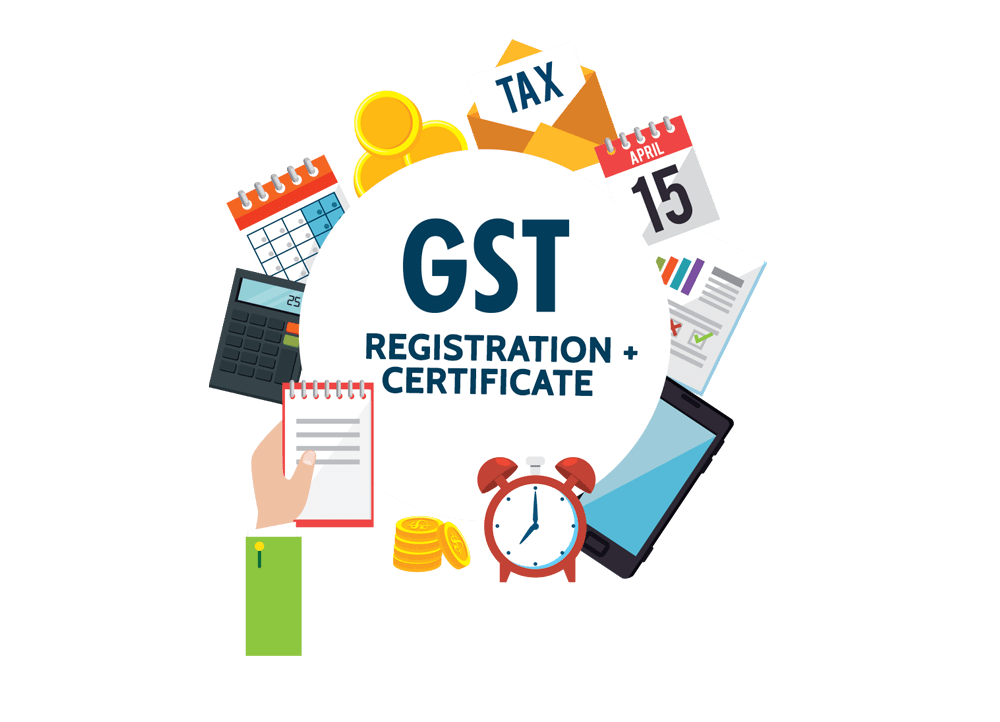Specialist Tips for Picking the Best GST Registration Services in Singapore
Specialist Tips for Picking the Best GST Registration Services in Singapore
Blog Article
From Beginning To End: The Ultimate Roadmap to GST Registration for Companies Seeking Financial Security
Navigating the intricacies of Goods and Solutions Tax (GST) registration is an important action for services pursuing financial stability. From understanding the basic concepts of GST to abiding by post-registration standards, the procedure can appear discouraging in the beginning glimpse. However, damaging down the roadmap right into manageable steps can enhance the enrollment trip for services wanting to enhance their financial standing. Let's explore the crucial components that compose this best roadmap and discover exactly how each stage adds to laying a solid foundation for monetary success.
Understanding GST Essentials
Looking into the basic principles of Product and Solutions Tax Obligation (GST) is vital for gaining a thorough understanding of its implications on businesses and the economy. GST is a value-added tax obligation imposed on a lot of goods and solutions for domestic consumption. It has actually replaced multiple indirect taxes that existed in the pre-GST age, streamlining the tax structure and enhancing ease of doing service in India. Under the GST system, both solutions and goods are tired at a particular rate, which is established based upon their category. If their annual turnover exceeds the threshold restriction established by the federal government, companies are needed to register for GST. Input Tax Credit History (ITC) is a substantial function of GST, allowing services to claim credit report for tax obligations paid on inputs, lowering the total tax obligation worry. Comprehending the fundamentals of GST is important for services to conform with tax obligation laws, manage their finances efficiently, and add to the nation's financial development by taking part in a transparent tax obligation system.
Eligibility Criteria for Registration
To register for GST, organizations need to satisfy specific qualification standards developed by the federal government. The key eligibility need is that any kind of organization included in the supply of items or solutions with a yearly aggregate turnover over the threshold restriction set by the authorities must sign up for GST. As of the present regulations, the threshold limit for GST registration is an annual accumulation turnover of 40 lakhs for companies operating within a state, with the exception of special category states where the restriction is 20 lakhs. In addition, particular businesses are needed to register for GST irrespective of their turnover, such as interstate suppliers, informal taxed individuals, and companies liable to pay tax under the reverse fee system. It is important for companies to thoroughly examine their turn over and deal kinds to determine their GST registration obligations accurately. Failing to sign up for GST when eligible can cause penalties and legal repercussions, making it crucial for companies to stick to the specified qualification requirements.
Papers Needed for Enrollment
Having actually fulfilled the eligibility criteria for GST registration, companies have to now guarantee they have the requisite files in location to wage the enrollment process efficiently. The papers required for GST registration normally include evidence of service constitution, such as collaboration action, enrollment certificate, or unification certificate for different kinds of organizations. Furthermore, services need to give papers developing the major area of organization, such as a rental contract or electricity expense. Frying pan card of the service, in addition to the identity and address proof of promoters/partners/directors, are essential for confirmation functions. Savings account declarations, together with canceled cheques or a duplicate of the financial institution passbook, are called for to confirm the financial information given during registration. Businesses should have electronic trademarks ready for the licensed notary. Ensuring all these records are arranged and easily offered will certainly speed up the GST registration process, making it possible for companies to adhere to tax laws flawlessly.
Step-by-Step Enrollment Refine
Beginning the GST enrollment process involves a collection of organized actions to make certain a seamless and compliant registration for services. The primary step is to go to the GST portal and fill in the registration kind with precise details of the Web Site service entity. Following this, the candidate obtains a Temporary Recommendation Number (TRN) which is utilized to return to the application procedure if it's not finished in one go.
Next, all needed files according to the list given by the GST portal need to be published. These records generally consist of evidence of company identification, registration and address evidence of marketers, monetary declarations, and company entity's PAN card.

Post-Registration Compliance Standards

Final Thought
To conclude, organizations seeking financial stability needs to recognize the fundamentals of GST, satisfy eligibility criteria, collect necessary files, follow the detailed enrollment procedure, and abide by post-registration standards - Best GST registration services in Singapore. By adhering to these steps, organizations can make certain compliance with tax obligation guidelines and maintain financial stability over time
In addition, particular businesses are needed to sign up for GST regardless of their turnover, such as interstate providers, casual taxable individuals, and businesses responsible to pay tax under the reverse charge system.Having actually satisfied the eligibility standards best site for GST enrollment, organizations must currently guarantee they have the requisite papers in place to continue with the enrollment process effectively. The documents required for GST registration normally consist of proof of service constitution, such as partnership act, registration certification, or incorporation certificate for different kinds of services. Additionally, companies need to provide documents establishing the major place of company, such as a rental arrangement or electrical power costs.Commencing the GST enrollment process involves a series of structured steps to ensure a seamless and compliant registration for businesses.
Report this page